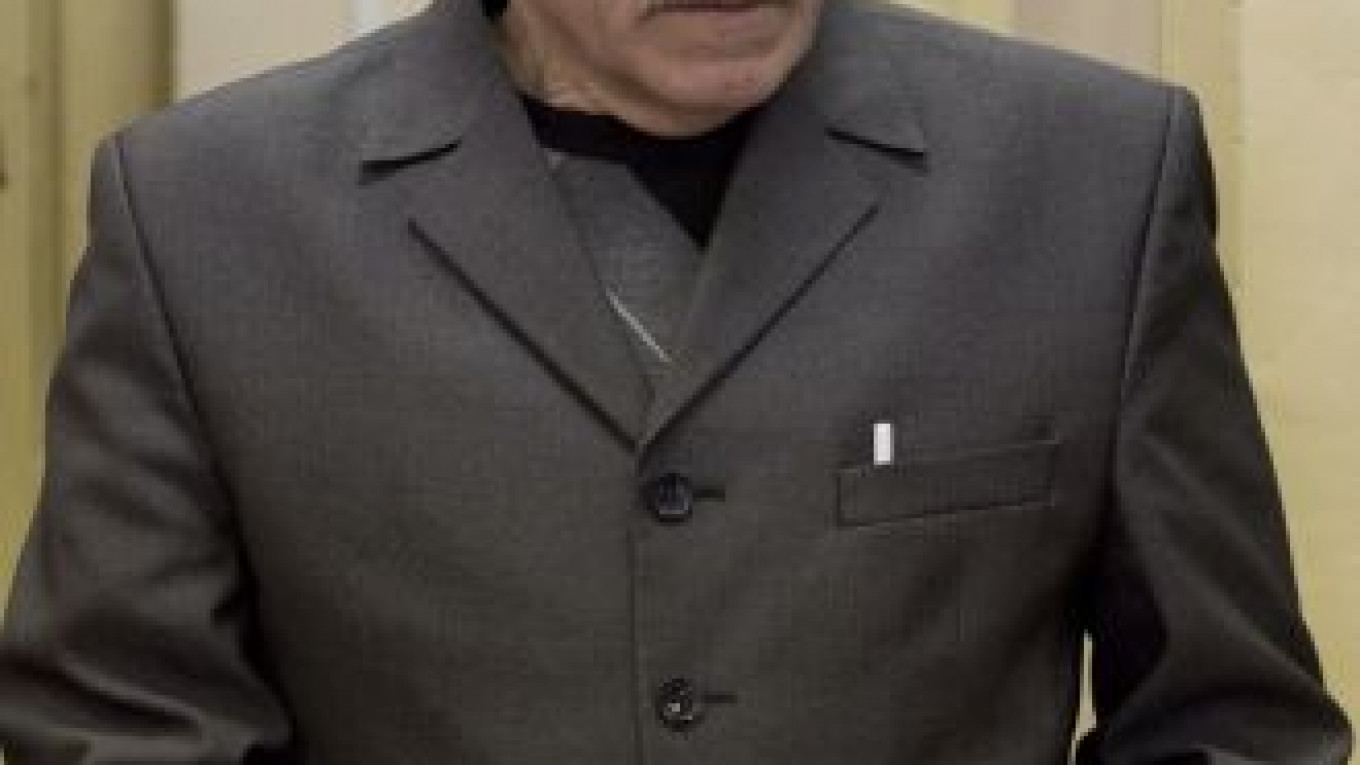KIROV — A key prosecution witness whose testimony triggered charges of embezzlement against a Russian opposition leader contradicted himself in court on Thursday, but then insisted that any inconsistencies were due to stress.
Alexei Navalny, who led protests against President Vladimir Putin and exposed corruption in his government, said the contradiction showed that the prosecutors had framed him.
The witness, Vyacheslav Opalev, was given a four-year suspended sentence in December after pleading guilty to conspiring with Navalny to steal timber from a state-owned company.
On Thursday, Opalev told the court he was forced into a deal by Navalny to buy timber at artificially low prices, rather than colluding with him, as he had declared in his written statement submitted last year.
The prosecution’s key witness gives testimony that is markedly different from his written statement and can’t remember details.
Navalny is accused of heading a criminal group that embezzled 16 million rubles ($500,000) worth of timber from that state-owned company. The charges could send him to prison for 10 years and would ban him from running for public office. Navalny insists the charges are revenge for his exposure of high-level corruption and campaign against Putin and his ruling United Russia party.
In his annual call-in show on Thursday, Putin expressed confidence that the Navalny trial would be "extremely objective" and said he had talked with the Prosecutor General's Office about it.
The case stems from Navalny's role as an adviser in 2009 to the governor of the region that includes the city of Kirov. Charges first brought in May 2011 alleged that Navalny had forced Opalev, director of the state-owned timber company KirovLes, to sign a disadvantageous contract that deprived the company of 1.3 million rubles.
Investigators dismissed those charges in April 2012 and then refiled them less than two months later. The new indictment says Navalny conspired with Opalev to launder the proceeds from the sale of timber through a holding company headed by co-defendant Pyotr Ofitserov.
On Thursday, Opalev did not mention his role in the conspiracy, saying that he "has been under a lot of stress" in the past two years and "has forgotten a lot of things and would like to forget everything as soon as possible."
The prosecutors then asked the judge — who approved the request — to read out the written statement Opalev submitted last year, in order, they said, to clear up "inconsistencies" in his Thursday testimony.
Opalev's written statement listed in detail his dealings with Navalny. This stood in stark contrast to his inability to remember any of the details when facing the court on Thursday.
When questioned by Navalny on the inconsistencies between his court testimony and his earlier written statement, which laid the foundation for the charges against Navalny, Opalev repeatedly replied: "I confirm what I said in the written testimony."
Speaking to the court, Navalny accused Opalev of giving false testimony against him "to dodge criminal prosecution in the case that the Kirov administration opened against him," Navalny told the court.
Mikhail Khodorkovsky, once Russia's richest man who has been described as its most famous political prisoner, said in an opinion piece in the Vedomosti newspaper on Wednesday that "in an honest and fair trial, such charges would be untenable and their political motivation obvious," referring to the Navalny trial and criminal cases against several dozen people charged with taking part in and inciting riots at an anti-Putin rally in May last year.
A Message from The Moscow Times:
Dear readers,
We are facing unprecedented challenges. Russia's Prosecutor General's Office has designated The Moscow Times as an "undesirable" organization, criminalizing our work and putting our staff at risk of prosecution. This follows our earlier unjust labeling as a "foreign agent."
These actions are direct attempts to silence independent journalism in Russia. The authorities claim our work "discredits the decisions of the Russian leadership." We see things differently: we strive to provide accurate, unbiased reporting on Russia.
We, the journalists of The Moscow Times, refuse to be silenced. But to continue our work, we need your help.
Your support, no matter how small, makes a world of difference. If you can, please support us monthly starting from just $2. It's quick to set up, and every contribution makes a significant impact.
By supporting The Moscow Times, you're defending open, independent journalism in the face of repression. Thank you for standing with us.
Remind me later.






